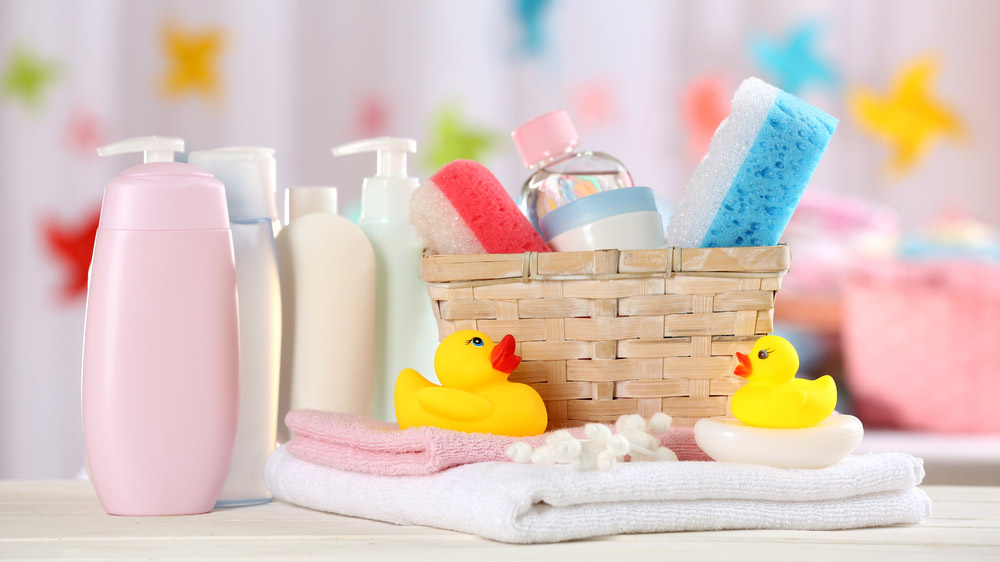
Introduction:
Welcoming a newborn into the world is a momentous occasion that prompts parents to make thoughtful choices about the products they use. In recent years, there has been a notable shift towards natural baby care products, reflecting a growing awareness of the benefits of gentler, eco-friendly alternatives. This article delves into the world of natural baby care, exploring the reasons behind the surge in popularity, the key components of these products, and the potential advantages for babies and the environment. In response to a growing awareness of the benefits of gentler, eco-friendly alternatives, there has been a notable rise in the popularity of Natural baby care products.
The Evolution of Baby Care Products:
The baby care industry has undergone a significant transformation, with an increasing number of parents seeking alternatives to conventional products laden with synthetic ingredients. Natural baby care products have emerged as a response to this demand, offering a range of items, from skincare to diapers, crafted with a focus on natural, organic, and sustainably sourced ingredients.
Understanding Natural Baby Care:
Natural baby care products prioritize the use of ingredients derived from nature, steering clear of harsh chemicals, synthetic fragrances, and artificial colors. Common components include plant extracts, essential oils, and minerals renowned for their soothing and nourishing properties. By harnessing the power of nature, these products aim to provide gentle care tailored to a baby’s delicate skin.
Skincare:
Natural baby skincare ranges from gentle shampoos and body washes to lotions and diaper creams. Ingredients like chamomile, calendula, and aloe vera are often featured, offering calming and moisturizing benefits. These products are designed to cleanse, protect, and nurture a baby’s skin without the use of harsh additives that may lead to irritation.
Diapers and Wipes:
Eco-friendly diapers and wipes have become staples in the world of natural baby care. Made from biodegradable materials, these diapers minimize environmental impact while providing a comfortable and hypoallergenic option for babies. Natural baby wipes often incorporate soothing ingredients like cucumber or lavender, offering a gentle cleansing experience without the worry of harmful chemicals.
Clothing and Bedding:
Natural baby care extends beyond skincare, encompassing clothing and bedding made from organic fabrics. Organic cotton, for example, is cultivated without synthetic pesticides or fertilizers, reducing potential irritants against a baby’s sensitive skin. Bedding made from natural fibers promotes breathability and comfort during sleep.
Feeding Products:
Parents seeking a natural approach to feeding often turn to products like organic baby formula, glass bottles, and natural rubber pacifiers. These alternatives minimize exposure to harmful chemicals commonly found in plastics. Natural baby bottles, made from glass or stainless steel, offer a safer option for both baby and the environment.
Toys and Play Products:
Even toys and play products have embraced the natural trend. Wooden toys crafted from sustainably sourced materials and painted with non-toxic dyes provide an eco-friendly and safe option for babies to explore their world. Natural rubber teethers and play mats made from non-toxic materials are additional examples of the expanding range of natural baby care items.
Environmental Impact:
Choosing natural baby care products is not only about providing the best for the baby; it’s also about considering the broader environmental impact. Organic farming practices, biodegradable materials, and eco-friendly packaging contribute to a more sustainable and Earth-conscious approach. This eco-awareness aligns with the desire of many parents to raise their children in a world where environmental responsibility is a shared value.
Benefits for Sensitive Skin:
The gentle nature of natural baby care products is particularly beneficial for babies with sensitive skin. Harsh chemicals and synthetic fragrances found in some conventional products can lead to skin irritations and allergies. Natural alternatives prioritize ingredients that are less likely to cause adverse reactions, offering a soothing and nurturing experience for babies with delicate skin.
Educating Parents:
The rise of natural baby care products is accompanied by a growing movement to educate parents about the potential hazards of certain chemicals present in conventional products. Awareness campaigns highlight the importance of reading ingredient labels, understanding the potential impact of certain substances, and making informed choices that align with a family’s values and preferences.
Challenges and Misconceptions:
While the natural baby care movement has gained momentum, it is not without challenges and misconceptions. Some parents may be skeptical about the effectiveness of natural alternatives or concerned about the perceived higher costs. Educating parents about the benefits, debunking myths, and making natural options more accessible can address these challenges and broaden the adoption of natural baby care.
Conclusion:
The embrace of natural baby care products signifies a profound shift in parental attitudes toward what goes into and onto their babies. With an increased focus on organic, eco-friendly, and gentle alternatives, parents are not only prioritizing the well-being of their little ones but also contributing to a more sustainable future. As the natural baby care movement continues to evolve, it reflects a collective commitment to nurturing the newest generation in harmony with nature, fostering a healthier and more conscious approach to early childhood development


